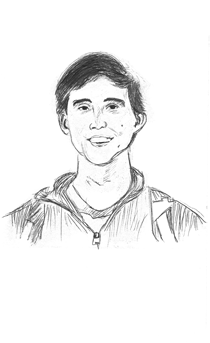 As the academic year begins and the Class of 2016 gets acquainted with Georgetown, freshmen are finding that adapting to college life isn’t easy. New students face a multitude of challenges, and I question whether the university is doing all it can to help them succeed.
As the academic year begins and the Class of 2016 gets acquainted with Georgetown, freshmen are finding that adapting to college life isn’t easy. New students face a multitude of challenges, and I question whether the university is doing all it can to help them succeed.
There are several measures Georgetown could take to ease new students’ academic transition. Such initiatives include instituting covered grades for the first semester, lengthening the add/drop period and expanding the Ignatius Seminar program. Implementing these ideas would give first-year students a richer and more manageable experience.
A policy of “covered grades” for the first semester of college means that students would receive marks of “satisfactory” or “not satisfactory” on their transcripts, rather than traditional letter grades. Georgetown could still keep a record of students’ letter grades for the first semester, but that information wouldn’t be public, and those grades wouldn’t factor into a student’s GPA. Several universities, notably Johns Hopkins, have adopted this system.
Covered grades would allow new students to adjust to the rigors of college courses without feeling excessive pressure, especially in academic areas that may be foreign to them. Success in college is about more than grades, and the fall semester of freshman year is a crucial period for determining interests and learning to be self sufficient. The added stress of knowing that performance will affect a long-term GPA can prevent students from becoming fully immersed in the Georgetown community.
Additionally, having covered first semester grades would allow students to take electives in unfamiliar academic areas without fearing damage to their GPAs. The first few courses taken in college account for one-eighth of a student’s GPA, and it is unfair and unproductive to put first-years in a hole simply because they are still adjusting to the rigors of college academics. Covered grades would provide even greater help to international students, whose adjustment to life in a new country and to a new education system is substantially more challenging.
Critics of covered grades often say that students will not work as hard if they don’t receive letter grades or that covered grades give first-years an edge over other students in the same course. However, I am sure that most Georgetown students would apply themselves regardless of if their grades weren’t official. Covered grades help put students on an equal playing field, allowing freshmen to take academic risks without fear of hurting their scholastic prospects.
A second measure that would improve students’ academic experience is lengthening the add/drop period. Traditionally, add/drop starts on the first day of class, a Wednesday, and ends the following Friday. Georgetown should extend the add/drop deadline at least to the Tuesday after the current deadline. This would give students an additional weekend to plan their schedules while adding two more class days to attend courses and evaluate waitlist options. Some courses meet only twice during the current add/drop period, which is not nearly enough time for students who are considering multiple course possibilities and extracurricular responsibilities to make an informed decision. Given that the course workload in the first week of school is light, students would still have plenty of time to catch up if they joined a class toward the end of registration.
Georgetown should also expand and further emphasize its Ignatius Seminars program. Restricted to incoming students, these small discussion classes offer freshmen the opportunity to build strong relationships with professors and find their voices in the classroom. My Ignatius Seminar, “The End of Education,” remains, even three years later, the most stimulating class I have taken at Georgetown. These seminars offer a refreshing contrast to large lecture halls, and they force students to engage in course material on a deeper level.
Georgetown has taken steps to orient first-years during their first days on the Hilltop, but there remains room for improvement. The university should implement these changes in order to promote a fairer, stronger and more balanced academic experience.
Dan Healy is a senior in the College. TALK IS CHEAP appears every other Tuesday.













